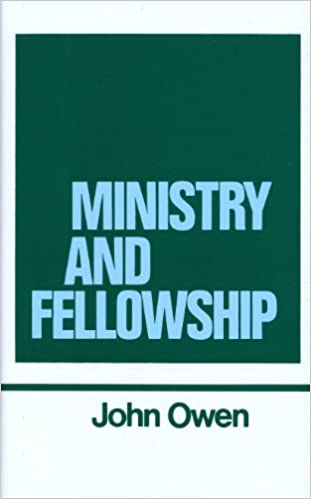A Brief Book Summary from Books At a Glance
by Steve West
Editor’s Note: Most of our readers will already be at least somewhat acquainted with John Owen (1616-1683), “the prince of Puritans,” but it is not likely that many have read him extensively. His works are not only voluminous – they are tightly packed and deeply considered. Owen is neither quick nor light reading!
Today we continue our year-long series of summaries of Owen’s famous works. We trust these will be of help in introducing and/or increasing your acquaintance with this giant Puritan theologian.
Summary, Part 3
Truth and Innocence Vindicated
Samuel Parker has written on the subject of “the power of magistrates over the consciences of men,” but he discusses their power and what he means by conscience in so many diverse ways it seems that he has not yet thought through his own position, and neither does he have any clear and distinct ideas about it. Christ was clear that Caesar has his proper sphere, and we are to obey him in terms of public peace and in the ordering of society. Parker asserts that the government has the right to govern the consciences of its subjects in the affairs of religion. The government must not be allowed to imagine its own ends, however, nor can it be supreme over religion and worship. Parker suggests that if the government commands something which is sinful, the guilt is theirs and does not belong to the one who obeys their command. He says that government is supreme over the consciences of men in worship, provided they do not command vice or something which disgraces Deity. It is considered a great sin to disobey their commands.
One will search in vain anywhere in England either before or after the Reformation for even a whisper of support for such an extreme position in regard to magistrate’s authority in religion. Prior to the authority of the magistrate, there is the authority that God has to command us how to worship him, and what he has forbidden we must not do. Given the way that Parker sets up his position, we will not be able to distinguish between the authority of the magistrate or of Christ, and in practical terms, it is the magistrate we will listen to. Whatever authority Christ has in the church, the magistrate is seen to have as well. Parker believes that it is right to obey God rather than man, but only in great matters. But who determines what a great matter is? Does the magistrate have the judgment of what is great or little? The power and authority claimed by the magistrate is the same kind of total, authoritarian power over the souls of men claimed by the pope. If the magistrate commands people to do things that they are unsure about, they will be torn and sin, since everything not done from faith is a sin. A papal government can command Romanism, or a Jewish one Judaism, or even Mohammedism! Such a view makes the Protestants martyrs to be fools. . . .
[To continue reading this summary, please see below....]The remainder of this article is premium content. Become a member to continue reading.
Already have an account? Sign In
